[Disclaimer: The information in this article is intended for general informational and educational purposes only. It is not meant to substitute medical advice from your physician or healthcare provider. Consult a medical professional with any health-related questions or concerns.]
Getting older is just part of life, but these days, a lot of people want to keep looking young. Women especially feel pressure to keep their youthful looks; you always search for that magic fix to stay or look younger.
Some try face creams, Botox, or even surgery to look fresher.
Now, there’s a new option: peptides. These can potentially help with wrinkles, weight, libido, fertility, and energy. But do they really work as well as people say?
Let’s take a closer look at peptides for women and see what they’re all about.
TL;DR – Best Peptides for Women
Here’s a quick rundown on how peptides can potentially benefit women’s health:
| Peptides | Key Benefits |
|---|---|
| GHK-Cu, Matrixyl 3000 | Reduces wrinkles Improves skin texture and elasticity |
| Tirzepatide, Semaglutide | Significant body weight reduction (up to 20.9%) Appetite suppression |
| Specific Collagen Peptides | Increase fat-free mass when combined with resistance training Improve overall strength |
| Kisspeptin, PT-141 (Bremelanotide) | May improve sexual desire in women with low libido Enhances arousal and satisfaction |
| PACAP, INSL5 | Play roles in follicular development Linked to PCOS (more research needed) |
Remember: While these peptides show promise, consult a healthcare professional before starting any new treatment.

How Peptides Function in the Body
Therapeutic peptides are short chains of amino acids that act as the body’s little messengers.
These peptide drugs can be administered carefully to have specific beneficial effects on the body. They zip around, delivering instructions to different cells and organs.
When you take a peptide supplement or use a peptide-infused product, you’re essentially giving your body a boost of these messengers.
Here’s how they work:
- Signaling: Peptides can bind to specific receptors on cell surfaces, triggering various biological responses, such as tissue repair, energy metabolism, cell growth, immunity, and more.
- Hormone Regulation: Some peptides act as hormones or stimulate hormone production.
- Enzyme Inhibition: Certain peptides can block the action of enzymes, influencing various bodily processes.
- Nutrient Transport: Some peptides help transport nutrients across cell membranes.
Think of peptides as tiny keys that fit into specific locks (receptors) in your body. When the right key finds its lock, it can unlock various health benefits.
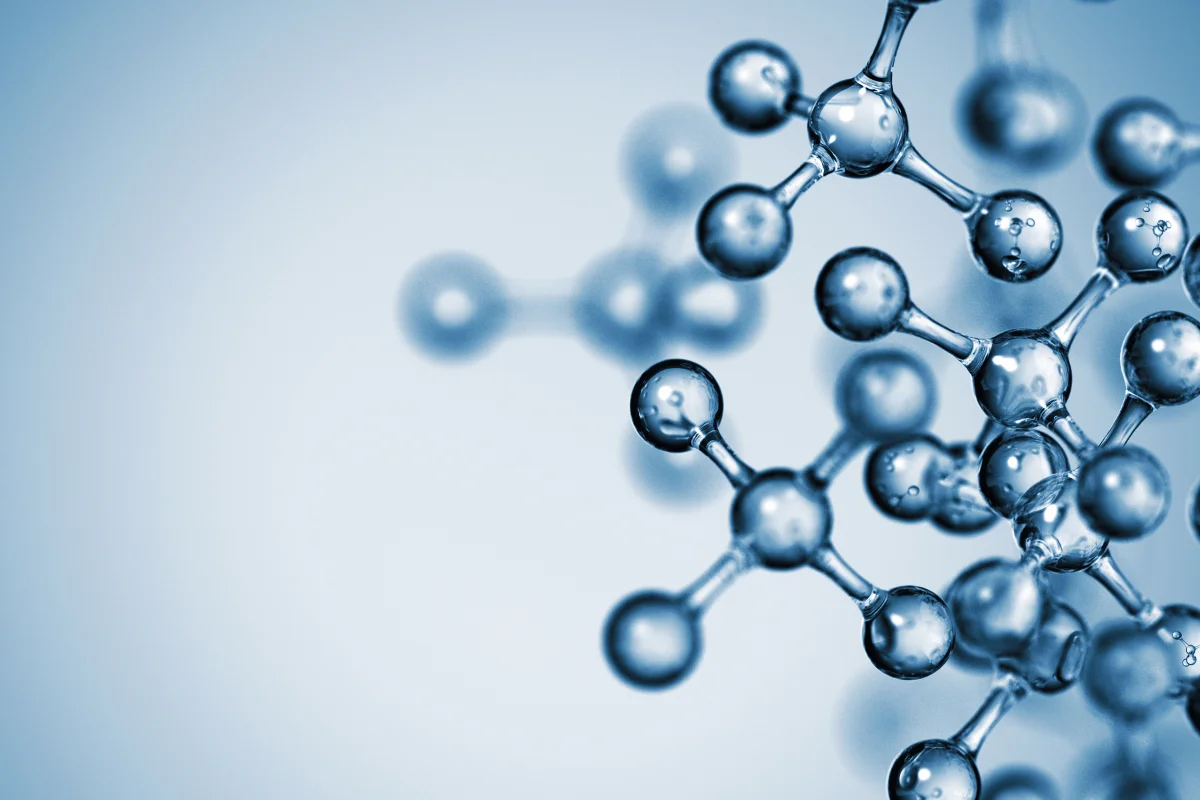
Why Women Need Peptides
While our bodies naturally produce peptides, their production decreases as we age.
This decline can lead to various issues that many women face:
- Decreased libido
- Reduced muscle tone
- Hormonal imbalances
- Skin aging and loss of elasticity
- Slower metabolism and weight gain
Peptides can help address these concerns by supplementing what our bodies may lack. Compared to many drugs, they offer a more targeted approach and have the advantages of superior bioavailability (the ability of the compound to be absorbed and used by the body) and good tolerability.
Benefits of Peptides for Women
Here are some of the top scientifically validated benefits of peptides for women:
- Improving reproductive health
- Correcting hormonal imbalances
- Gaining lean muscle mass
- Protecting brain function and mood
- More energy, endurance, and vitality
- Increased fat-burning and weight loss
- Reduced cell aging and healthier skin
The exact benefits you get depend on the types of peptides used, as we’ll now explore.

Types of Peptides Commonly Used by Women
Let’s learn about the specific peptides that are popular among women:
Best Peptides for Skin
As we age, our skin loses its elasticity and radiance. You can add these two peptides to your skincare routine:
GHK-Cu
GHK-Cu is a naturally occurring copper tripeptide in human blood.
Here’s what the research tells us:
- Wrinkle Reduction: A study of 71 women with mild to advanced signs of photoaging found that using a GHK-Cu facial cream for 12 weeks led to denser and thicker skin, less sagging, better skin clarity, and reduced fine lines and wrinkle depth.
- Skin Rejuvenation: the same study revealed that GHK-Cu has skin regeneration and wound healing benefits.
- Eye Area Improvement: In a 12-week study with 41 women, a GHK-Cu eye cream performed better than a placebo and vitamin K cream in reducing lines and wrinkles and improving overall appearance.
- Collagen Boost: GHK-Cu helps your body make more elastin and collagen, proteins that keep your skin firm and stretchy.
GHK-Cu isn’t just for your face:
- Hair Growth: Using GHK-Cu topically can increase the size and thickness of hair follicles.
- Wound Healing: GHK-Cu is shown to activate connective tissue production, remodel the extracellular matrix, and act directly on wound fibroblast cells.
Matrixyl 3000
Matrixyl 3000 is a synthetic peptide composed of two specific peptides: palmitoyl tripeptide-1 and palmitoyl tetrapeptide-7.
A 12-week clinical trial published in June 2024 evaluated the efficacy of an eye cream containing both the components of Matrixyl 3000 along with other active ingredients.
The study found:
- Significant increase in skin hydration (28.12% improvement)
- Enhanced skin elasticity (18.81% improvement)
- Substantial boost in collagen production (54.99% increase)
- Visible improvements in skin moisture, roughness, elasticity, fine lines, and wrinkles, as reported by both dermatologists and participants, starting from week 8
These results prove that formulations containing these peptides can provide comprehensive anti-aging benefits.
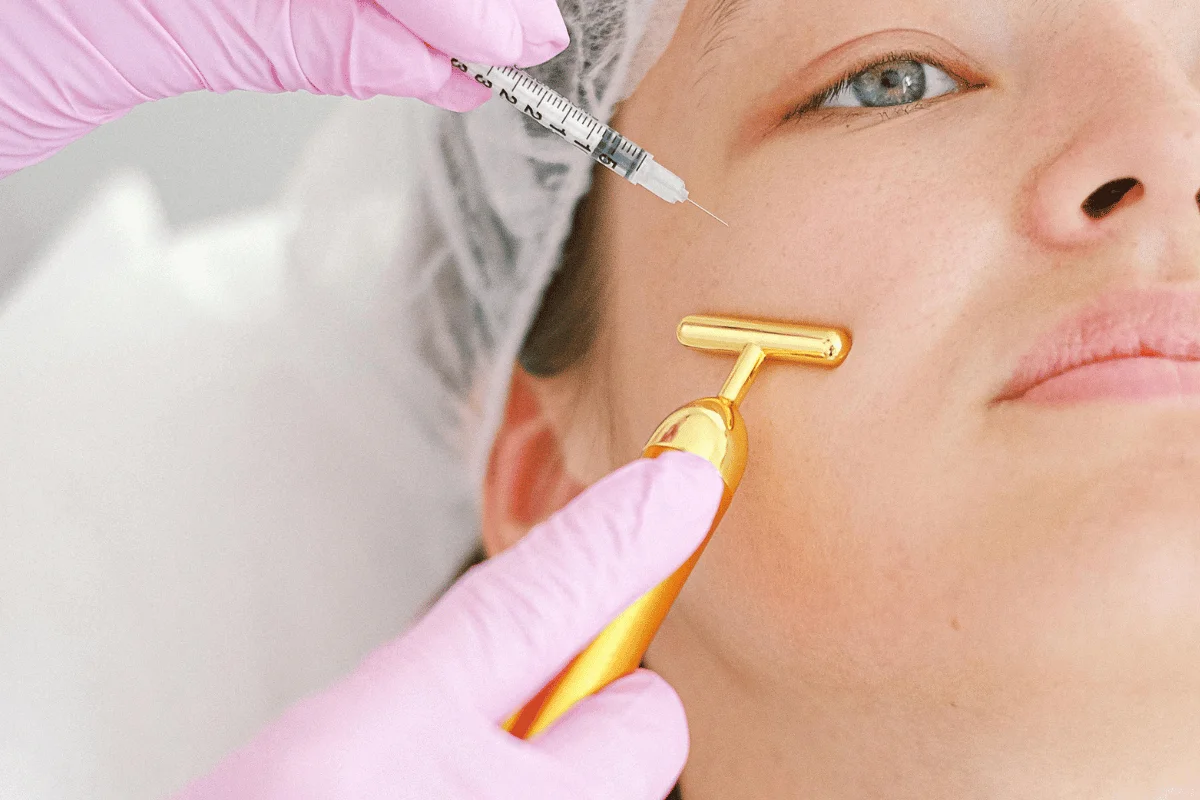
Best Peptides for Female Weight Loss
Are you struggling to shed those extra pounds? Many women find weight loss challenging, but some peptides might offer a helping hand:
Tirzepatide
Tirzepatide is a newcomer to the weight loss peptides market. It’s a once-weekly injectable peptide that’s showing promising results.
Here’s what you need to know:
- How it Works: Tirzepatide activates your body’s two receptors – the GIP (glucose-dependent insulinotropic polypeptide) receptor and the GLP-1 (glucagon-like peptide-1) receptor. This dual action helps control blood sugar and appetite.
- Impressive Results: In a 72-week trial with 2,539 adults, tripeptide showed amazing results. People taking the highest dose (15 mg) lost an average of 20.9% of their body weight — that’s about 52 pounds for someone starting at 250 pounds!
- More than Just Weight Loss: Tirzepatide also improved other health markers, such as blood pressure, cholesterol levels, and blood sugar control. The FDA has approved Zepbound (Tirzepatide) for treating chronic weight management and type 2 diabetes.
Note: There were some mild side effects; the most common ones were gastrointestinal, like nausea and diarrhea. These happened mostly when people first started taking it.
Semaglutide
Semaglutide is another peptide showing significant results for weight loss:
- How it Works: Semaglutide is a GLP-1 receptor agonist (a substance that initiates a physiological response in combination with a receptor) that increases insulin secretion and suppresses appetite.
- FDA Approved: In June 2021, semaglutide was approved for long-term weight management in adults who are obese or overweight and have at least one related health condition.
A once-weekly study of semaglutide looked at semaglutide for weight loss in obese adults. People who took semaglutide lost about 15% of their body weight over 68 weeks, while those who didn’t only lost 2.4%.
The drug worked even better when combined with healthy eating and exercise, but some people had mild side effects like nausea.
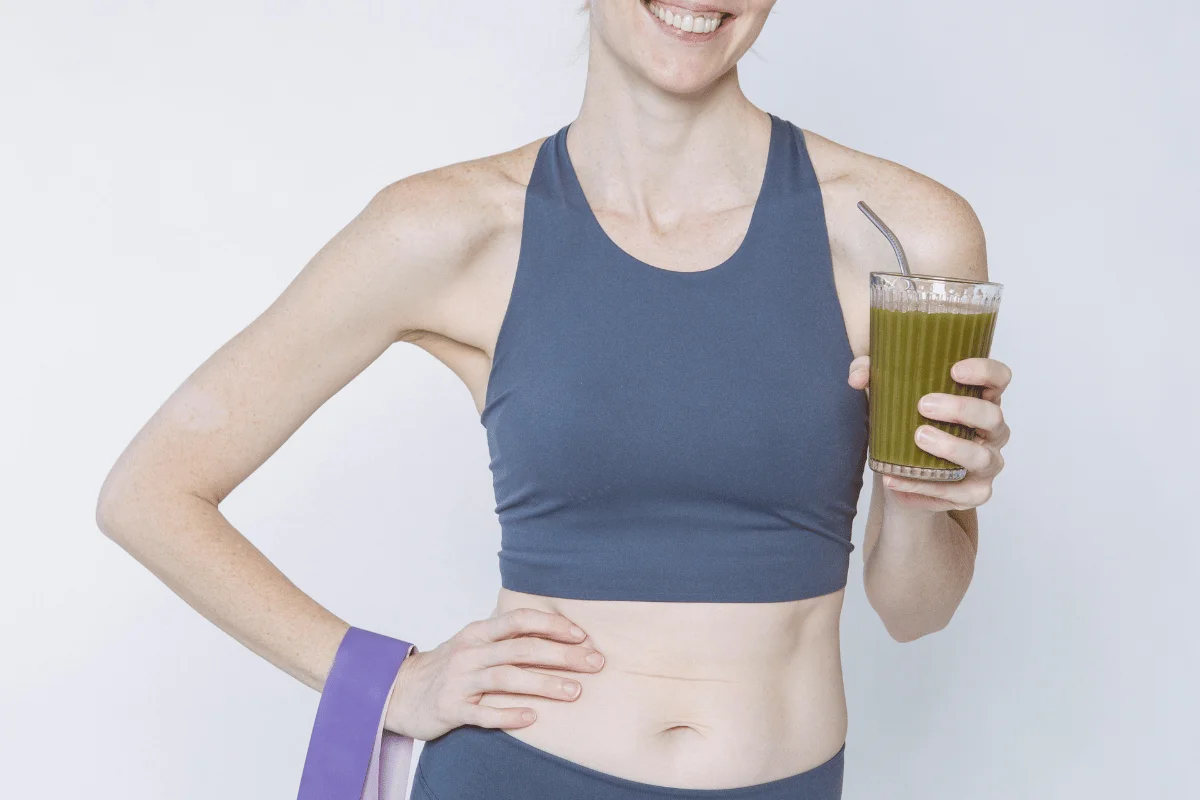
Best Collagen Peptides for Women
Collagen is the most common protein in our bodies. It’s vital for skin firmness, joint mobility, and gut health. But as we get older, we make less collagen naturally.
That’s where collagen peptides can help.
A randomized controlled trial involving 77 premenopausal women showed significant benefits of specific collagen peptides (SCP) combined with resistance training:
- Body Composition: The treatment group significantly increased their percentage of fat-free mass.
- Fat Loss: The treatment group showed a higher body fat percentage reduction.
- Strength Gains: The collagen peptide group showed a significantly higher gain in hand-grip strength than the control group.
Many collagen peptides are FDA-approved and come in powder form. You can add them to your diet by mixing them into your morning coffee, smoothie, or even baked goods!

Peptides for Women’s Libido
This is something that many women struggle with, but few discuss it openly. It’s a common issue, especially as we age or go through hormonal changes.
Here are two peptides that could be the solution:
Kisspeptin
Kisspeptin is a naturally occurring hormone in our bodies that plays a role in puberty and fertility. However, recent research suggests it might also help boost libido in women.
A randomized clinical trial involving 32 premenopausal women with hypoactive sexual desire disorder (HSDD) showed promising results:
- Brain Effects: Kisspeptin administration modulated sexual and attraction brain processing.
- Correlation with Distress: Women who reported more distress about their sexual function at baseline showed better brain activation in response to erotic videos after taking kisspeptin.
- Reduced Sexual Aversion: When women took kisspeptin, their brains reacted better to handsome men’s faces. This matched with feeling more interested in sex overall.
Kisspeptin could be a potential treatment for women with HSDD or just libido issues in general. However, more studies are needed to understand the side effects and possible uses of kisspeptin fully.
PT-141 (Bremelanotide)
PT-141 is another peptide that’s showing promise for boosting women’s libido.
Unlike Viagra, which works by increasing blood flow, PT-141 works by activating brain pathways associated with sexual arousal.
- FDA Approved: PT-141 is FDA-approved for premenopausal women with HSDD.
- How it Works: It’s a self-administered subcutaneous injection taken about 45 minutes before sexual activity.
- Dosage: The recommended dose is 1.75 mg, given no more than once every 24 hours and no more than eight monthly doses.
Two identical phase 3 clinical trials (RECONNECT) on 1267 women evaluated the safety and efficacy of bremelanotide in premenopausal women with HSDD.
Women who took bremelanotide felt more desire for sex and less stress about their low desire compared to those who didn’t take it. The drug seemed to help, but the improvement was moderate.
While these results are promising, PT-141 isn’t suitable for everyone and can have side effects (nausea, flushing, and headache). Always consult with your doctor before starting any new medication.
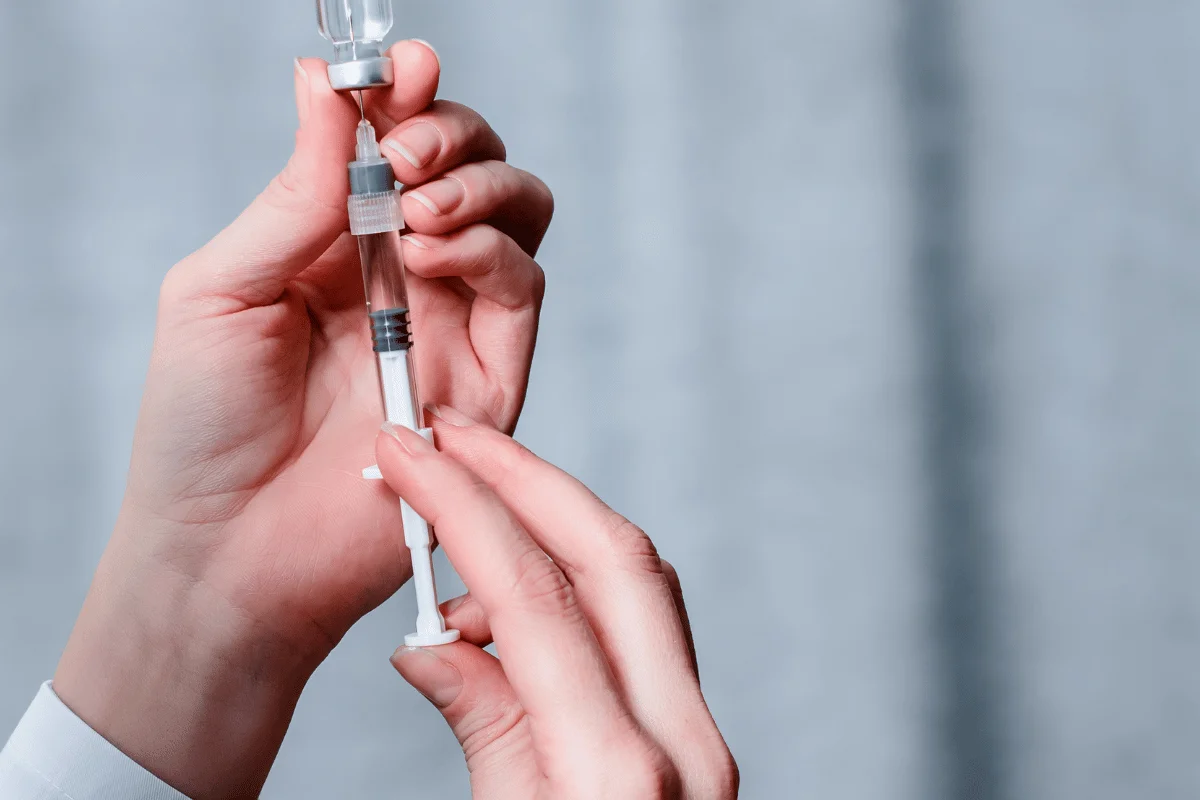
Peptides for Female Fertility
While many factors can affect fertility, some peptides are showing promise in potentially improving reproductive function:
Insulin-like Peptide 5 (INSL5)
INSL5 is a peptide that’s gaining attention in fertility research.
Here’s what recent studies have found:
- Correlation with AMH: A study published in the Journal of Ovarian Research (with 117 women with PCOS and 100 healthy subjects) found that higher levels of INSL5 were linked to higher levels of AMH in women with PCOS. This means that as the amount of INSL5 increases, the amount of AMH also tends to increase. AMH is a hormone that indicates how many eggs a woman has left and their quality.
- Potential PCOS Marker: The same study found that women with PCOS had much higher levels of INSL5 compared to those without the condition. Since PCOS causes fertility issues, this suggests INSL5 could potentially be used as a biological marker for PCOS.
- Reproductive Function: Animal studies have suggested that INSL5 might play a role in the reproductive system, with INSL5-deficient mice showing irregular estrous cycles.
More research is still needed to clarify if INSL5 supplementation directly affects fertility in women.
PACAP
PACAP is a peptide found naturally in many body tissues, including the ovaries.
A review published in the journal Frontiers in Endocrinology highlighted the potential roles of PACAP in female fertility:
- Follicular Development: PACAP appears to be involved in the growth and development of ovarian follicles, which house and nurture the eggs.
- Ovulation: PACAP might play a role in the process of ovulation.
- Hormone Production: PACAP has been shown to influence the production of various hormones in the ovary.
However, much of this research is still early, often involving animal studies. More research is needed to fully understand how PACAP might be used to improve fertility in humans.

How to Include Peptides Into Your Routine
You can incorporate peptides into your routine in three ways:
- Oral supplements: Collagen peptides are often available as powders or capsules.
- Topical applications: Many skincare products contain peptides like GHK-Cu.
- Injections: Some peptides, like PT-141, are administered via injection under medical supervision.
We recommend starting with the lowest recommended dose. Consult a healthcare professional before beginning any new supplement regimen.

Side Effects of Peptides for Women
When sourced responsibly and used carefully under medical guidance, peptide side effects tend to be mild. Still, some common side effects can include:
- Dizziness
- Headaches
- Changes in blood pressure
- Skin irritation (with topical applications)
- Digestive issues (with oral supplements)
Pregnant or breastfeeding women should avoid peptide supplementation due to insufficient safety data. Screening for contraindicated medical conditions, like active cancers, is also necessary.
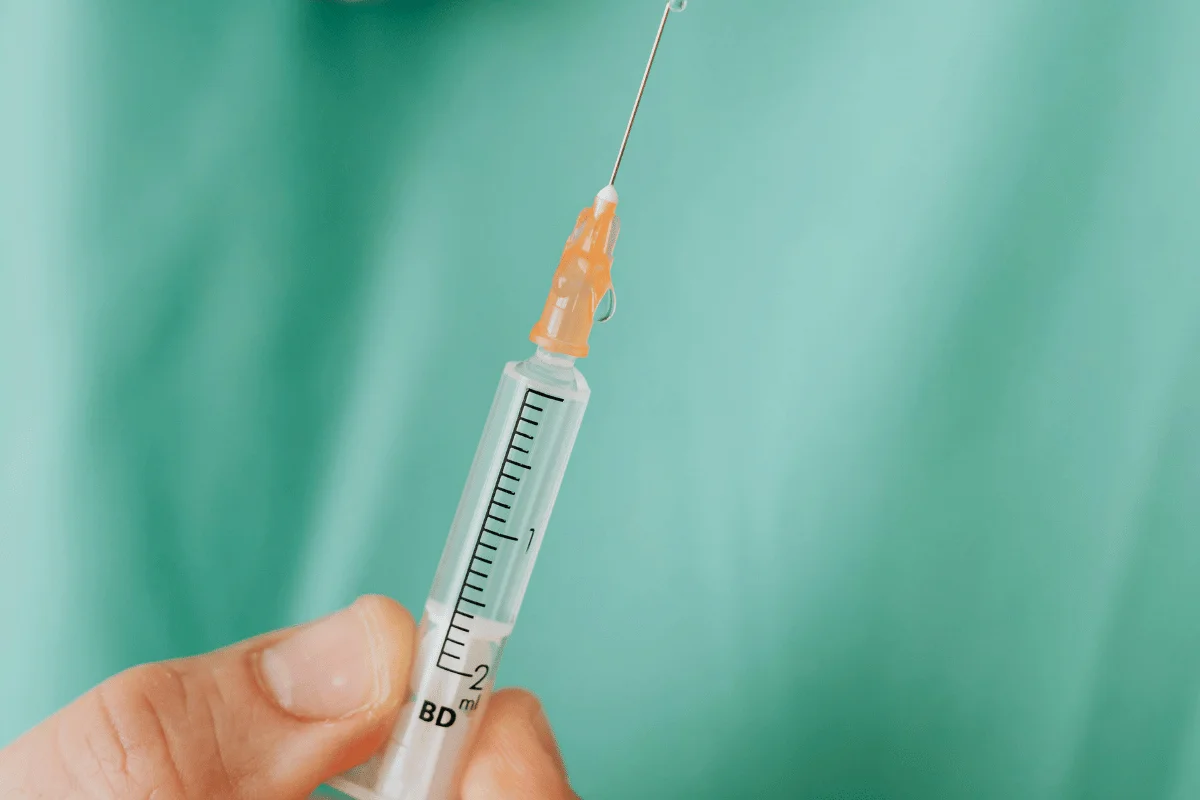
Frequently Asked Questions (FAQs)
Let’s address some common questions about peptides for women:
Are Peptides Safe for Long-Term Use?
While many peptides have shown promising safety profiles in short-term studies, long-term safety data is limited for some peptides.
It’s best to use them under medical supervision and take occasional breaks from supplementation.
Can Pregnant Women Take Collagen Peptides?
No. We don’t know if it’s safe for pregnant or breastfeeding women; there’s limited research on its use during pregnancy.
It’s best to wait until after pregnancy to use these supplements.
How Long Does it Take to See Results from Peptides?
It depends on the peptide and the person taking it. Some women see changes in skin health after 4-12 weeks of regularly using collagen peptides.
Other peptides might work faster, even within days or weeks.
What is the Cost of Peptide Supplements for Women?
You can expect to pay about $1000 for the first three months, including professional medical oversight, testing, and correct peptide selection.
After that, it’s about $250-$800 per month. It depends on specific peptides, doses, frequency, insurance coverage, and clinic fees.
Conclusion
Therapeutic peptides offer proven and lasting solutions for many female health struggles, from skin aging to low energy. However, always talk to a doctor before trying new supplements.
To learn more about peptides, check out All About Peptides. We offer high-quality peptides for research purposes and have a wealth of information on our website.
PS – If you’re a health enthusiast seeking peak performance, join hundreds of biohackers exploring smart peptide use through the All About Peptides newsletter. We discuss biohacking, health optimization, and life enhancement with peptide therapy.
See you inside!
